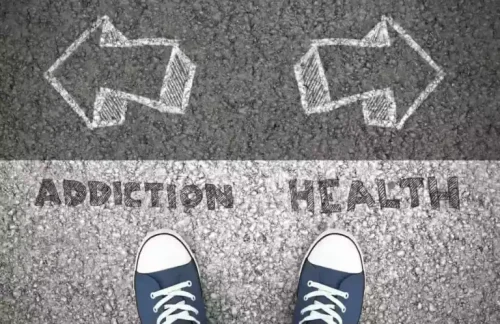
Often, the alcohol-provoked lung damage goes undetected until a second insult, such as a respiratory infection, leads to more severe lung diseases than those seen in nondrinkers. Molecular mechanisms of the dose-dependent effects of alcohol on the immune system and HPA regulation remain poorly understood due to a lack of systematic studies that examine the effect of multiple doses and different time courses. There may be important differences in the effects of ethanol on the immune system depending on whether the study is conducted in vitro or in vivo, as the latter allows for a complex psychogenic component in which stress-related hormones and immune-signaling molecules interact. In addition, most studies have been done in vitro using primary cells or cell lines in the presence of rather high, constant doses of ethanol. Similarly, most rodent studies to date have focused on acute/short-term binge models utilizing high concentration of ethanol (20% ethanol) as the sole source of fluid, a possible stressor in itself. Therefore, there is a pressing need for in depth studies that examine dose-dependent effects of chronic ethanol consumption on immunity in vivo to allow for the complex interactions between ethanol, its metabolites, HPA signaling, nutritional deficiencies, and the immune system.
Effects of Alcohol on Tumor Growth, Metastasis, Immune Response, and Host Survival
Soon after, the World Health Organization (WHO) also suggested that people cut back on drinking, since alcohol can increase the risk of experiencing complications from COVID-19. The study researchers, led by Ilhem Messaoudi of the School of Medicine at the University of California, Riverside, say their research may help lead to a better understanding of how the immune system works, and how to improve its ability to respond to vaccines and infections. This includes people who are pregnant, have alcohol abuse disorder, or are taking medications that interact with alcohol. The immune system is how your body defends itself from infections – like harmful bacteria and viruses – and prevents you from getting sick.

The First Line of Defense: The Effects of Alcohol on Post-Burn Intestinal Barrier, Immune Cells, and Microbiome

After eliminating pathogens by phagocytosis, the monocytes exhibit pathogen-derived proteins and other molecules (i.e., antigens) on their surfaces. Finally, monocytes and macrophages also produce certain cytokines that help regulate immune system activity. These observations could explain why animals drinking moderately generated a more robust does alcohol weaken your immune system response to MVA vaccination compared to controls and animals that drank to intoxication since these factors are critical for lymphocyte proliferation, T cell activation and effector function, and immune cell recruitment. Decreased IL-2 and CCL5 levels provide insight into possible mechanisms of impaired T cell recruitment and proliferation.
- Numerous studies have demonstrated alcohol-related impairment of T-cell responses to various challenges.
- If a person regularly drinks alcohol, their injuries, cuts, and surgical site wounds may heal slower than someone who avoids alcohol.
- This same treatment also inhibited the in vitro production of IL-6 and IL-12 by peritoneal macrophages harvested 2 hours following injection of LPS (Pruett, Fan et al. 2005).
- Without healthy gut bacteria, viruses and infections can worsen and develop into more severe complications.
- To elicit a response from the cell-mediated arm of the adaptive immunity, antigens need to be presented to the CD4+ and CD8+ T-cells.
- Finally, alcohol inhibits the responsiveness of B-cells at certain developmental stages (i.e., blasts, which are the precursors to the antibody-secreting plasma cells) to various cytokines, particularly to IL-2 and IL-4.
- There are lots of illnesses going around, and we are often stuck indoors—which can also mean excessive eating and drinking.
Higher Vulnerability to Disease
In other studies, chronic alcohol feeding impaired Th1 responses to a hepatitis C virus protein, a defect that was hypothesized to result from impaired secretion of IL-2 and GM–CSF by dendritic and T-cells (Geissler et al. 1997). This alcohol-induced defect in Th1 immunity correlates with suppression of IL-12 secretion by macrophages and dendritic cells (Waltenbaugh et al. 1998). Thus, it appears that alcohol inhibits Th1 immune responses and may predispose the organism to Th2 responses and that this shift is at least partly mediated by suppression of IL-12. The first line of host defense involves both structural (i.e., epithelial) cells and immune cells (i.e., macrophages and dendritic cells) at mucosal surfaces. The epithelial cells function as a physical barrier as well as regulators of the innate and adaptive immunity.
In addition, chronic alcohol can decrease the number of B-cells that produce an antibody type called IgA5 in one of the layers of mucous membranes (i.e., the lamina propria), which is indicative of altered mucosal immunity (Lopez et al. 1994). Finally, alcohol inhibits the responsiveness of B-cells at certain developmental stages (i.e., blasts, which are the precursors to the antibody-secreting plasma cells) to various cytokines, particularly to IL-2 and IL-4. However, alcohol may have a dual effect on B-cell function because some studies have reported that B-cells also could be activated in alcohol-consuming people (Drew et al. https://ecosoberhouse.com/ 1984). Numerous sources of evidence gathered from experiments carried out in rodents show that modifications in the composition of gut microbiota impact in the brain functions and behavioral aspects [65], including the predisposition to high alcohol consumption [66]. Leclercq et al. [67] found a correlation between leaky gut and inflammation with modifications in scores of depression, anxiety and social interactions in alcohol craving. Along the same line, it has been shown that rats replicate several behavioral and biochemical alterations after stool transplantation from patients with depression and anxiety behaviors [68].
Alcohol and Cell-Mediated Host Defense Mechanisms
Ria provides access to anti-craving medications, weekly coaching meetings, expert medical advice, and more—all from an app on your phone. As with most things in life, the arrow points to “moderation” (unless you are in a high-risk group due to poor health or pregnancy). “In essence, using alcohol to dampen emotional misery ends up making people more miserable,” he says.
How does drinking alcohol affect health?

How much alcohol you have to drink before it weakens your immune system
How alcohol impacts the lungs
- That said, evidence also shows that even smaller amounts of alcohol can affect the immune system.
- Numerous sources of evidence gathered from experiments carried out in rodents show that modifications in the composition of gut microbiota impact in the brain functions and behavioral aspects [65], including the predisposition to high alcohol consumption [66].
- Catalase is localized to peroxisomes and requires hydrogen peroxide to oxidize alcohol into water and acetaldehyde.
Deprecated: Function get_magic_quotes_gpc() is deprecated in /var/www/qosmotec/staging/html/wp-includes/formatting.php on line 4826